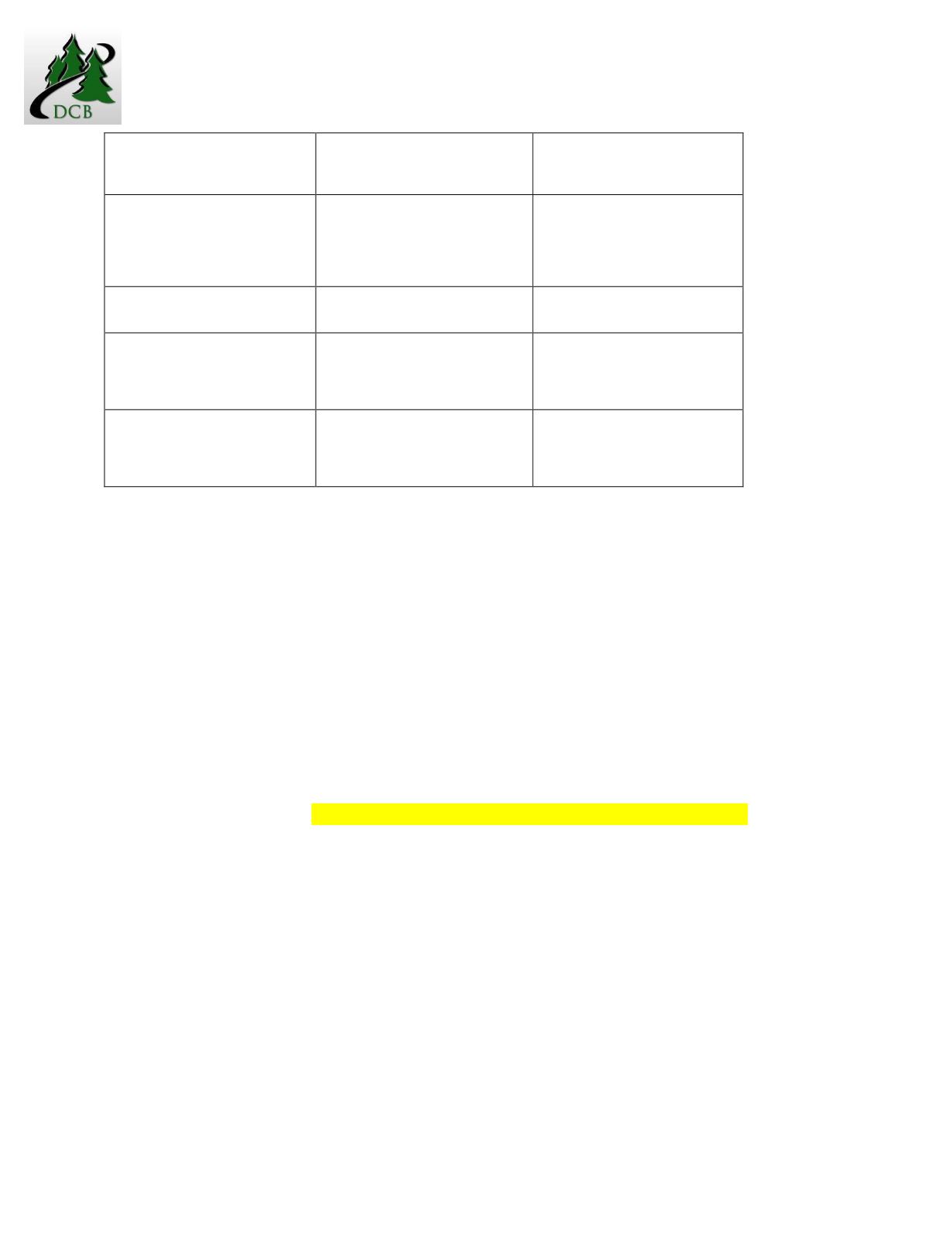

SPED 101 INTRODUCTION TO DEVELOPMENTAL DISABILITIES
BRANDI RUDLAND
Fall 2016 (online)
DAKOTA COLLEGE BOTTINEAU
Assessment Plan:
Students will create
an assessment strategy for a student
with a disability, based on an
identified objective, lesson and goal.
2K1, 3K1, 10K2, 8K1, 3S1, 7S2
20 points
Resource List:
Students will research
and identify community services,
websites, organizations, schools, legal
services etc… that could be used by
individuals with disabilities and their
families.
1K1, 1K2, 2K1, 9S5, 10K1
20 points
Transition Plan:
Students will write a
transition plan for a student with a
disability
1K1, 1K2, 2K1, 3K1, 10K1, 7S2, 9S5
20 points
Additional Activities:
These include a
Daily Routine, Rights Assignment,
Student Perception and
Organizational Change and task
analysis assignment.
1K1, 2K1, 3K1, 3S1, 4S1, 4S3, 4S4, 4S5,
9S5
20 points each
Philosophy of Special Education-
Students will use their knowledge and
skills to reflect upon the semester to
create a statement on their
philosophy of special education.
1K1, 2K1, 3K1, 4K2, 10K1, 10K2, 3S1,
4S1, 4S3, 4S4, 4S5, 9S5
60 points total
General Education Goals/Objectives:
•
Students will demonstrate an understanding of human development.
•
Students will develop and identify techniques for working with and interacting with others with
and without disabilities.
Relationship to Campus Theme: “Nature, Technology, and Beyond”
The purpose of the Education and Human Development Discipline is to educate students for careers as
paraeducators, teachers, early childhood professionals and adult caregivers. The discipline provides
coursework which transitions into higher degrees and work-related skills. Programs must prepare
professionals based on industry standards and provide and educational continuum for degree
advancement. Dakota College at Bottineau is committed to hands on learning environment and uses
field experiences in educational setting as a common instructional techniques.
Class Policies:
•
Regular participation
•
Regular attendance (Lack of Logging in and participation will effective final grade)
•
Complete all assignments, discussions, tests and quizzes in a timely manner and in the order
they are assigned.
•
Communication with instructor and fellow students
•
Be prepared when class starts.
•
Follow campus ethics policy on written work.
•
Campus Issued Email be used as primary email.
Grades:
Grades are earned through points and converted into a percentage. Percentages are calculated
by dividing the total points earned by the total points possible. Grades are assigned to percentages:


















